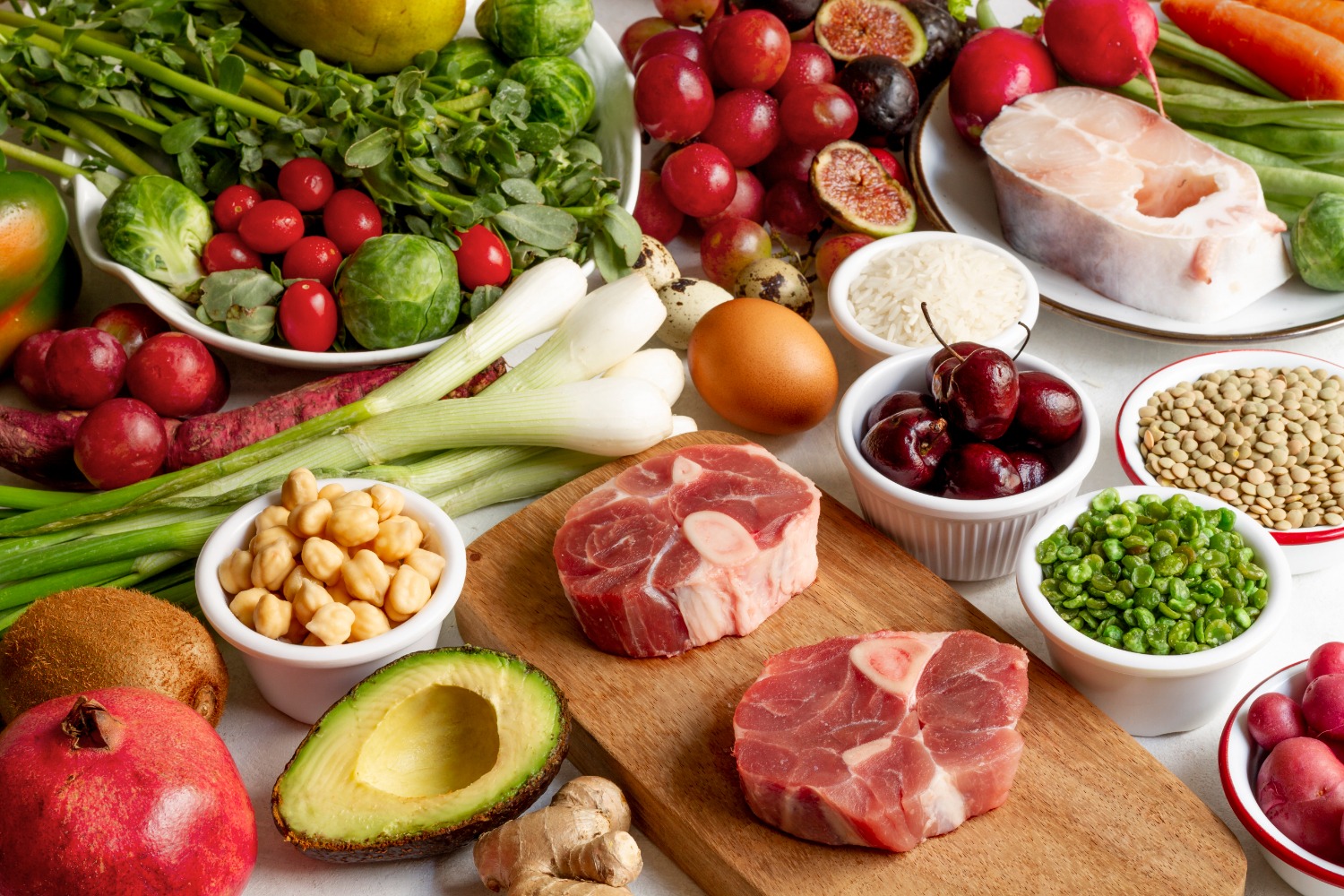Gaining muscle mass is one of the main goals of most people working out, whether they are fitness buffs, athletes, or simply people trying to achieve better physical health and a more desirable look. Exercise is essential for muscle growth, but nutrition is no less crucial. It gives muscles the fuel and building blocks to recover and develop well. Regarding muscle-building nutrition, information about macronutrients will be key. Bulk-forming properties include proteins, carbohydrates, and fats.
Perfectly balancing these macronutrients is the secret to building muscle and hitting fitness targets. The blog discusses why you need protein, how carbs fuel your muscles, and why it is crucial that your diet remains balanced. This guide will explain how to structure your nutrition plan. This method will enable you to gain muscle efficiently and achieve long-term objectives.
Key Benefits / Why It Matters

The Role of Macronutrients in Muscle Growth
Macronutrients—proteins, carbohydrates, and fats—are essential for our bodies. Each plays a unique role in muscle growth and overall health.
- Protein Intake builds muscles and provides amino acids needed for muscle repair and growth. Without enough protein, your muscles can’t recover or grow after workouts.
- Carbohydrates: Known as muscle fuel, carbohydrates are the body’s primary energy source. They power intense workouts and help restore glycogen stores used during exercise.
- Fats: Healthy fats are crucial for hormone production, including testosterone, vital for muscle growth. They also provide energy and help absorb fat-soluble vitamins.
Real-Life Applications
The macronutrient breakdown enables you to tailor your diet to promote muscle gain. A bodybuilder will require more protein than a moderate-exercise person. Similarly, high-endurance athletes may need more carbohydrates for sustained energy.
Step-by-Step Guide to Macronutrient Breakdown for Muscle Growth

Step 1: Determine Your Caloric Needs
First, determine your daily caloric needs. Calculate this using your Basal Metabolic Rate (BMR) and your activity level. Many online calculators can help.
Step 2: Calculate Your Protein Intake
Make protein a priority for muscle growth. A good guideline is 1.6 to 2.2 grams of protein per kilogram of body weight. For instance, if you weigh 70 kg, aim for 112 to 154 grams of protein daily.
Sources of Protein
- Animal-Based Proteins: Chicken, beef, fish, eggs, and dairy.
- Plant-Based Proteins: Lentils, chickpeas, tofu, and quinoa.
Step 3: Optimize Carbohydrate Intake
Carbohydrates are vital for energy during workouts and recovery. Aim for 3 to 7 grams of carbohydrates per kilogram of body weight, based on your activity level.
Sources of Carbohydrates
- Complex Carbs: Whole grains, oats, sweet potatoes, and legumes.
- Simple Carbs: Fruits and natural sugars are best around workout times for quick energy.
Step 4: Include Healthy Fats
Healthy fats should comprise 20-35% of your daily caloric intake. Focus on fats that support health and hormone production.
Sources of Healthy Fats
- Monounsaturated Fats: Olive oil, avocados, and nuts.
- Polyunsaturated Fats: Fish oil, flaxseeds, and walnuts.
Additional Expert Tips & Common Mistakes to Avoid
Best Practices
- Meal Timing: Spread your protein intake evenly across meals for better muscle synthesis.
- Hydration: Stay hydrated, as it is essential for muscle function and recovery.
- Supplementation: Consider whey protein or BCAAs if you can’t meet your protein needs through food.
Common Mistakes
- Overeating Protein: Too much protein won’t equal more muscle growth and can lead to excess calories.
- Neglecting Carbs and Fats: Ignoring carbohydrates and fats can hurt your energy levels and progress.
- Inconsistent Diet: Consistency is vital. An inconsistent diet can slow muscle growth.
Advanced Insights / Expert Recommendations
Individualised Nutrition Plans
Everyone has unique nutritional needs. Age, gender, metabolic rate, and training intensity can affect your macronutrient requirements. Consulting a nutritionist or dietitian can provide tailored advice.
Monitoring and Adjusting
Keep track of your progress and adjust your macronutrient intake as needed. Your caloric and macronutrient needs may change as you gain muscle. A food diary or tracking app can help you stay on course.
Fuel Your Gains for Maximum Muscle Growth

Protein is essential for repairing and building muscle. It provides vital amino acids that reconstitute muscle fibres after strenuous workouts. The primary fuel source for the body is carbohydrates. They replenish glycogen stores and fuel workouts. This allows for performance and endurance to be maintained. Healthy fats are involved in producing hormones like testosterone. This hormone is essential for muscle building and recovery.
You, my friend, just span a world of muscle-building cut down to just macros. Focus on protein, adequate carbs for energy, and healthy fats. Again, be consistent and personalised. Calculate your caloric needs, base your meals on your macro goals, and adjust as necessary.
Take control of your nutrition now and witness your muscles expand. Are you pumped to light up your gains?

